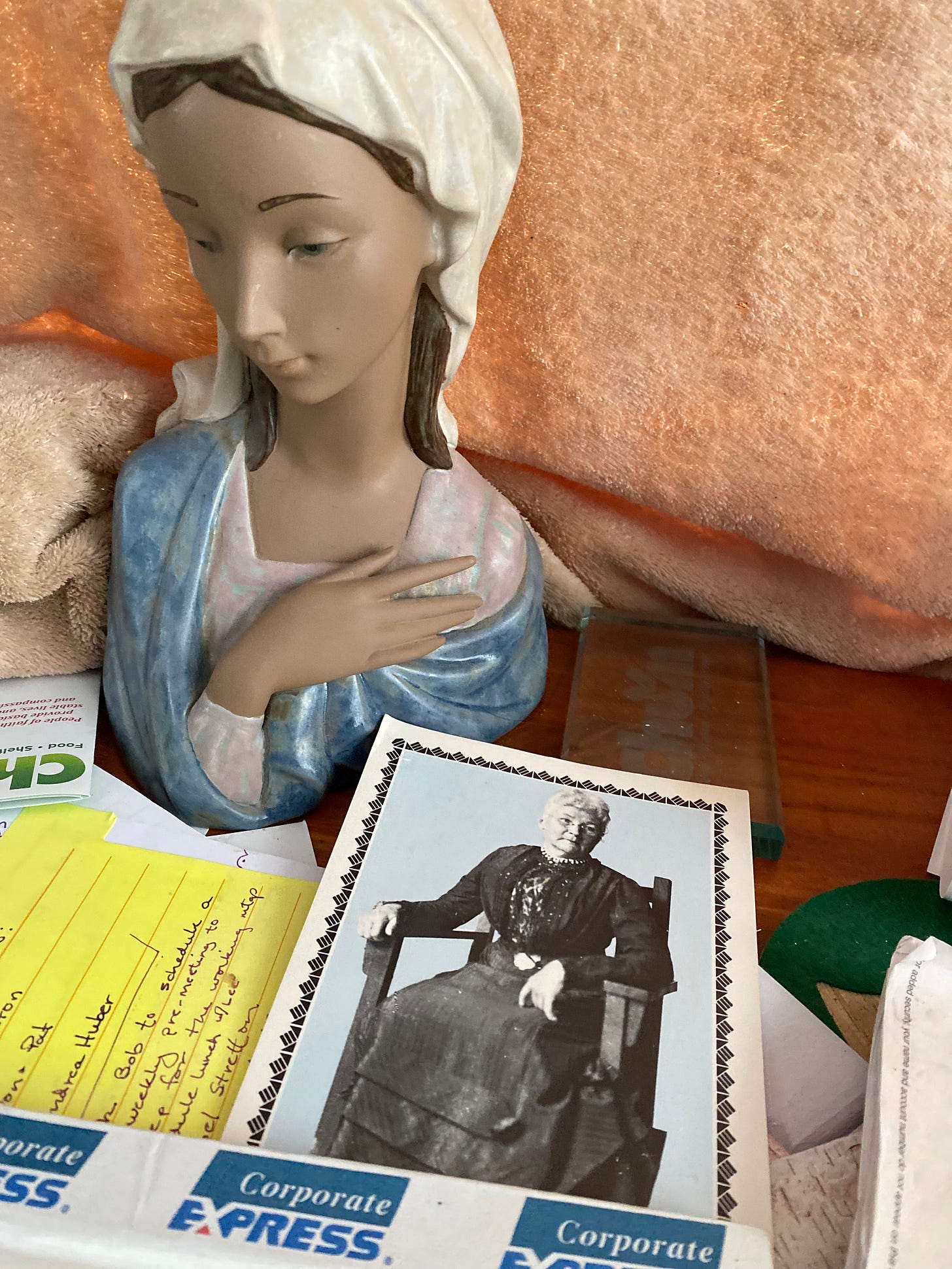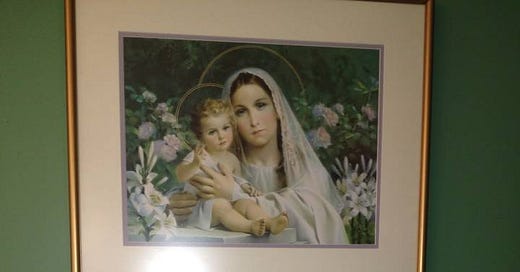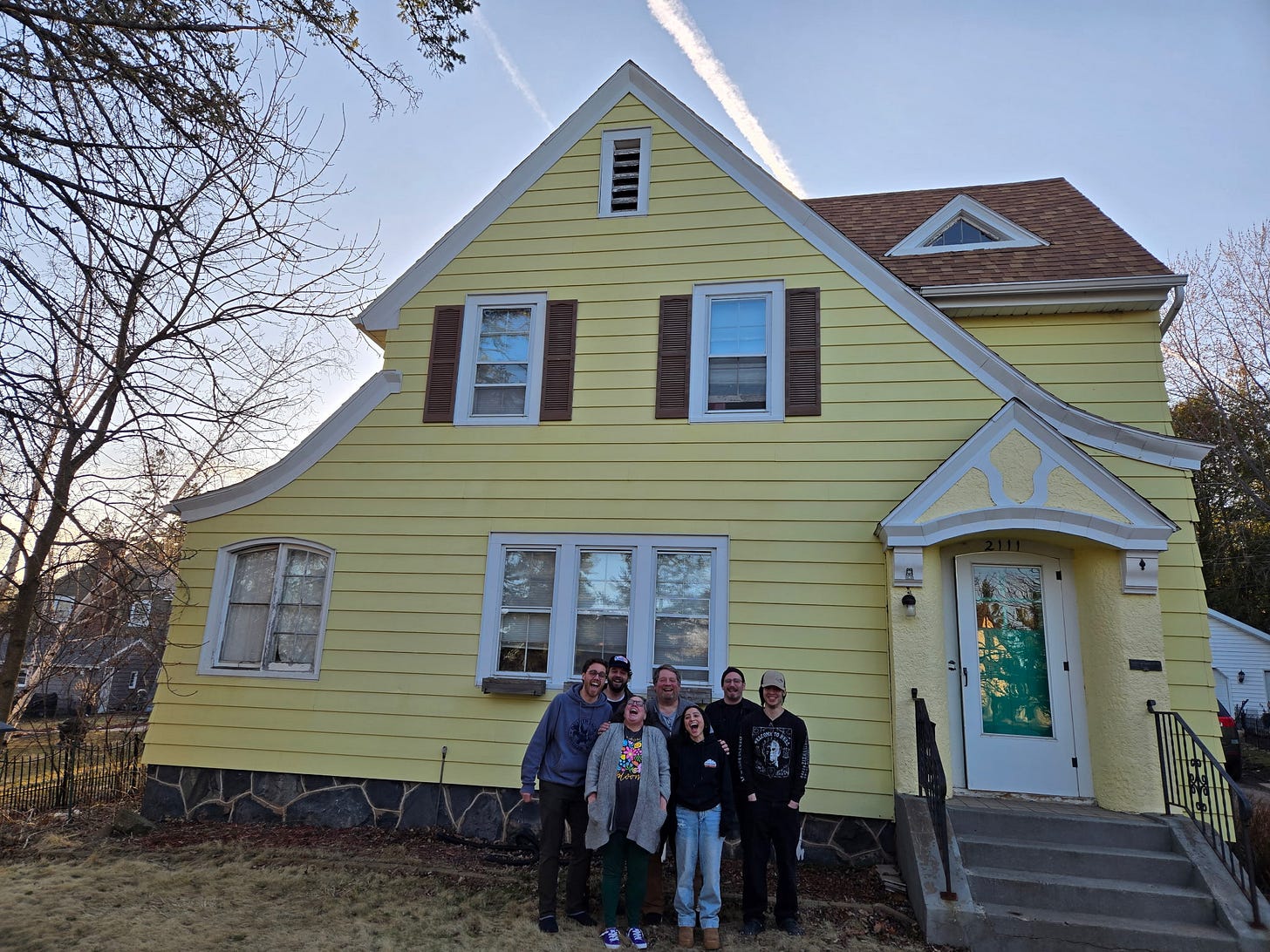“The house I grew up in is full of broken things.” This was the first line of the first piece of writing I ever published. The rest of the paragraph went on to list all the broken things in the house, including many saint statues that had lost their heads from kids “rough housing” or dogs knocking end tables. As my mom recently quipped, you can’t have saint statues with broken heads in your house unless you have saint statues in it.
A few months ago, my parents moved out of that house. The house I and all four of my siblings grew up in. The house we argued in and loved in, cried and laughed in. It was a house we welcomed hundreds of guests into, family and friends, bishops and nuns and mayors. It was the home we celebrated great moments in and received life altering news in. It was a house of broken things, a house full of mirth and mess.
For many years, I really didn’t like the house. I found the brokenness of it, the one bathroom for seven people, the messiness of it frustrating. And yet, all of my high school friends loved to congregate there. Not in some basement tv room where we could have our own space, (the concept of “one’s own space” didn’t quite exist there) but in the dining room where we would dance to music while my parents cooked dinner. When I told some of these friends about the move, they recalled all the dinners at the table, many with my Grandpa Ray holding court.
When I wasn’t able to visit my grandpa in the hospital as he was dying, one of my dear friends who had come to know him over this dinner table went to see him. They discussed history and science in the hospital room as they had at the table.
I learned to love the house. It wasn’t long before I left it that I began to see how special it was. Few houses, I came to realize, had a “Raise the Wage” yard sign hanging on the wall beneath the Madonna and Child. We had fridge magnets of the Seven Principles of Catholic Social Teaching that hung next to magnets of Oscar Wilde quotes, the Pieta, and bottle openers with the Pope’s face on them.
The saints, the headless ones and the somehow still intact ones, were everywhere. In the yard, on the walls, on window ledges. Just behind the sink was a small pot of dirt, (maybe there was a plant in it at some point?), a cup of twisty straws, dish soap, a small plastic grey figurine of St. Joseph and a holy card of Sanctus Benedictus. Ora et Labora.
The mantle, for many years, held up bobbleheads of Rosie the Riveter, Pope Francis, and Smokey the Bear alongside statues of John Paul II, Saint Francis, Saint Patrick, and a cross-stitching that read “Hallelujah, Holy Shit, Where’s the Tylenol.”
The house was a catechism. It taught us that the seemingly irreverent or profane and the sacred are not two opposite poles of some long spectrum of life. Their closeness is life itself.

And the brokenness was a catechism. Hospitality was not contingent on anything, really. We didn’t need a big house, a clean house, a nice house to host people. There was a table; that was enough.
And the table itself was a catechism. For years, the many people who have sat at the dining room table have carved their names into the top of the wobbly wooden table, a hand-me-down from my great aunt and uncle. When we eat, we rest our plates upon the names of those who have sat there before us, some who have gone before us. It is an altar which, in keeping with tradition, holds relics of the saints whose memory we keep whenever we gather. The table feasted saints and sinners.
It was an altar and it was also a battleground. It played host to heated arguments over trivial and important matters. It held up grieving people as they planned funerals. It welcomed elderly folks on holidays who didn’t have other family to celebrate with. It was the stage for opining and teaching and learning and praying.
It was where we prayed the Memorare each night before dinner as our dear friend Betsy was fighting cancer. It was where meetings took place to fundraise for the food shelf. It was, on at least one occasion, where the Holy Sacrifice of the Mass was offered. It was where my grandma fed spoonfuls of mashed potatoes to her fat ass Cairn Terrier named Blaise.
The house, which is to say my family, taught me lessons that I will spend my life trying to live into. That brokenness does not limit, but expands the capacity for wholeness, for beauty, for glory. It is the same lesson writ large on any number of crucifixes that hung upon the walls of that house.
We were fortunate to grow up in the house we did. Sure things were broken, unfinished, and messy at times, but it was a sturdy, warm house that sheltered us well and provided all that we needed and more.
My parents’ new house is decidedly less full of broken things. And the time is right for that. They deserve it, if any of us really deserve anything. They lived so many years in a house of broken things not because they loved the brokenness, but because they accepted it. It was a natural consequence of other decisions they had made, to raise five kids, for example, and to send them all to Catholic school, a gift that I will forever be grateful for.
The garage at the new house still holds unpacked boxes and remnants from the old house that have yet to be sorted and stowed. In one corner, is a pile of wood from a broken bed that my grandfather had made years ago along with a baby cradle he made when my oldest brother was born. The cradle is filled with junk and sitting atop the junk is a framed image of Christ’s passion.
It is not an image that I love or find particularly artful. It hung on the wall at the old house and, though it is framed, the glass broke years ago when it got knocked off the wall. It was given to us by my grandma’s husband a long time ago because he thought it had some monetary value. I have no idea if it does or not, but I can tell you now that for me its value has been raised seeing it in this corner of junk.
It was a reminder, like the hundreds I’ve received over the years, that God is present in the mess and there is no need to retrieve God from it, but to seek God in it.







Billy, this brought tears to my eyes and gave me a heart lift at the same time. It was sacred space, life and love was celebrated there. It was never a house. It was a home to many whether or not they lived there. Kudos to your parents and to each and all of you blessed to share all that is good under its roof.
I’m sure it will take a while to unpack the belongings at your parents new home, but the memories will be even more slowly unpacked each and every day and perhaps differently by everyone. The language of love was spoken there and will continue to be spoken as new memories are created in your new home.
Beautiful, Billy!